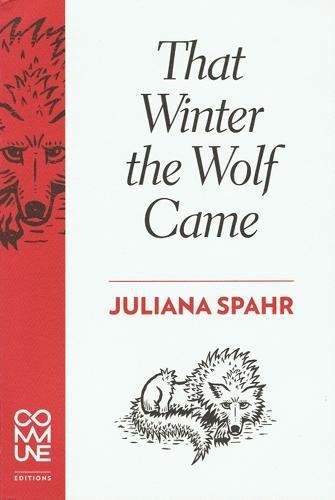My current project/chapter has me returning to Mark Z. Danielewski’s work, a novelist who’s been with me since I first thought about teaching, and latter became an important fixture for how I think about literature, and then, again, latter, became an even more important figure for how I think about ethics, (non)humans, and so much more. Although the chapter is specifically interested in inter-weaving Danielewski’s most recent set of novels, collectively known as The Familiar, into contemporary posthumanism, figuring The Familiar as another resource for theorizing relationality among (non)humans, it’s also given me a chance to revisit his work as a whole. Specifically, I’m looking at some of the ‘paratextual’ (if you can call it that) projects surrounding The Familiar including a talk that later became an article called ‘Parable No. 9: The Hopeless Animal and the End of Nature.’ Given in Cologne, Germany in the Fall of 2010, the talk catalyzed my interest in posthumanism, actor network theory, and speculative realism (though I’ve largely abandoned the latter two in favor of the former), and continues to inform how I think about hope and our relation to animals. By that same token, I’m hoping that ‘Parable No. 9’ will offer insight into Danielewski’s novels—there’s clearly cross-contamination—as well as provide fodder for positioning his work among other posthuman theorists.
This summer, i was lucky enough to participate in the inaugural modern and contemporary studies initiative summer institute at penn state. Necessarily germinal, the paper i presented gestures the first dissertation chapter i’m working on, tentatively titled ‘the subject after postmodernism: Barad, Levinas, and Intra-Active Ethics’. A pdf of the presentation can be found below.
 Juliana Spahr’s That Winter the Wolf Came offers solace in a moment of ecological anxiety and disaster. As Trump pulls the U.S. out of the Paris Climate Accord (indeed, a largely symbolic act but with very real ecological, economic, and political ramifications), I’m struck by the right’s oxymoronic stance on the country’s autonomy, or the ability to be autonomous in an age of intensified globalization. It’s easy to see the tension between the way the nation-state holds open the door for transnational capital—i.e. producing fluid borders rather than locking them down and securing the reproduction of a specific citizenry—and the insistence that somehow the U.S. can stand alone, or dictate the terms by which its borders function. The travel ban, increased racist violence, and the dream of an economy sustained by coal all play into this fantasy of the autonomous nation, and by proxy the autonomous masculine figurehead Trump longs to become.
Juliana Spahr’s That Winter the Wolf Came offers solace in a moment of ecological anxiety and disaster. As Trump pulls the U.S. out of the Paris Climate Accord (indeed, a largely symbolic act but with very real ecological, economic, and political ramifications), I’m struck by the right’s oxymoronic stance on the country’s autonomy, or the ability to be autonomous in an age of intensified globalization. It’s easy to see the tension between the way the nation-state holds open the door for transnational capital—i.e. producing fluid borders rather than locking them down and securing the reproduction of a specific citizenry—and the insistence that somehow the U.S. can stand alone, or dictate the terms by which its borders function. The travel ban, increased racist violence, and the dream of an economy sustained by coal all play into this fantasy of the autonomous nation, and by proxy the autonomous masculine figurehead Trump longs to become.
I picked up Tom McCarthy’s Satin Island when I began conceptualizing and planning my dissertation proposal. In an effort to situate my project in whatever ‘the contemporary’ is, I scoured the web for discussions, syllabi, and articles that focused on the contemporary novel. Reading through Post-45’s series of letters from Princeton’s ‘The Contemporary’ conference, McCarthy’s novel came into focus as ‘the most discussed (and maligned) novel of the conference,’ so I decided to give it a shot.
I’m revisiting Andrew Culp’s Dark Deleuze this week. My director suggested the book last summer somewhere between me reading A Thousand Plateaus and Claire Colebrook’s Death of the PostHuman as an example of a negative version of Deleuze that might help make sense of Colebrook’s work. In general, and this is the way I’ve always read D&G, TP has always been this joyous and affirmative text riddled with ‘little monsters’ for cultivating novel concepts (Culp 1). Each plateau offered something new—a new concept, methodology, reading. In moments of lucidity (usually while reading and then never again) it feels very portable. Dark Deleuze, by comparison, is very different: ‘Emerging from scholars concerned with the condition of the present, the darkness refashions a revolutionary Deleuze: revolutionary negativity in a world characterized by compulsory happiness, decentralized control, and overexposure’ (2). This struck me as odd for two reasons: first, all of my work is ‘concerned with the condition of the present,’ so it seemed odd that I hadn’t encountered much of this scholarship. But second, and while I absolutely agree with Culp that the revolutionary concepts offered by Deleuze throughout his corpus—‘transversal lines, rhizomatic connections, compositionist networks, complex assemblages, affective experiences, and enchanted objects’—had been largely integrated into public consciousness, it’s never occurred to me Deleuze’s work had run it’s course, cleaved into neoliberal-ese (7).